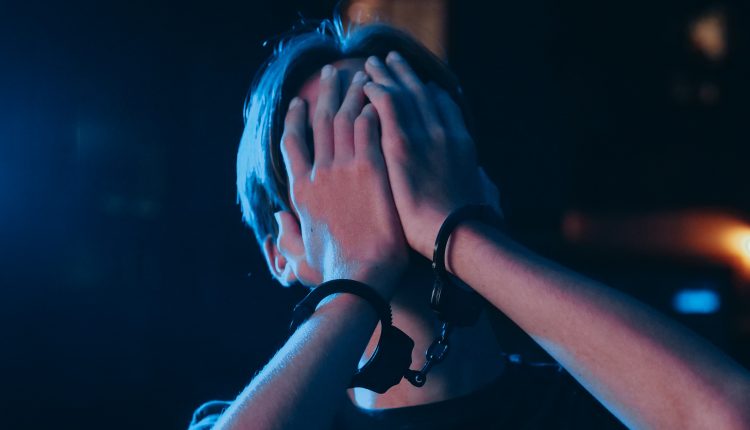
Kleptomania: causes, symptoms, diagnosis and treatment
Kleptomania is included in the Manual of Mental Disorders (DSM-IV TR) under Impulse Control Disorders and is characterised by “the recurrent inability to resist the impulse to steal objects that have no personal utility or commercial value”
In fact, the theft is carried out neither out of revenge, nor out of anger, nor behind a delusion or hallucination, but from the inability to resist a compelling desire.
Generally, the objects stolen by those suffering from kleptomania are of little value to the subject who often gives them away or throws them away
More rarely, he may even keep them and return them secretly.
Often, however, as in other similar disorders, the uncontrolled gesture is followed by deep feelings of guilt and self-disapproval.
Nevertheless, and despite all good intentions not to repeat it, the cycle usually repeats itself ad infinitum without the kleptomaniac being able to interrupt it, except by refraining from frequenting all places where he or she might be tempted (e.g. shops, supermarkets, etc.).
The kleptomania patient usually does not plan the theft, he or she carries it out alone without the complicity or assistance of anyone, taking care not to be arrested.
The act of stealing is preceded by a feeling of increasing tension accompanied by pleasure, gratification and relief following the theft.
The subject realises the senselessness of the act and may experience a state of depression and a strong sense of guilt as a result.
As is natural, kleptomania can cause legal, family, career and personal difficulties
It can begin at any age; it can start in childhood, adolescence or adulthood and in rare cases in late adulthood; the condition seems to be more common among women than men, as is the case with compulsive shopping (with which it has many similarities).
Kleptomania can undergo evolutions and changes, for instance, subjects may steal sporadically alternating with long periods of remission; episodes of theft may alternate with periods of remission or the disorder may be chronic.
The disorder may continue for years despite multiple theft convictions if not adequately treated.
Treatment of kleptomania is possible, provided the subject is truly motivated to get help, and necessarily requires a cognitive-behavioural psychotherapeutic intervention.
In some cases, supportive drug therapy may also help, for a certain period, especially if the disorder is associated with depressive symptoms.
Read Also
Emergency Live Even More…Live: Download The New Free App Of Your Newspaper For IOS And Android
What Is OCD (Obsessive Compulsive Disorder)?
Impulse Control Disorders: What They Are, How To Treat Them
Nomophobia, An Unrecognised Mental Disorder: Smartphone Addiction
Impulse Control Disorders: Ludopathy, Or Gambling Disorder
Gambling Addiction: Symptoms And Treatment
Alcohol Dependence (Alcoholism): Characteristics And Patient Approach
Exercise Addiction: Causes, Symptoms, Diagnosis And Treatment
Schizophrenia: Symptoms, Causes And Predisposition
Schizophrenia: What It Is And What The Symptoms Are
From Autism To Schizophrenia: The Role Of Neuroinflammation In Psychiatric Diseases
Schizophrenia: What It Is And How To Treat It
Schizophrenia: Risks, Genetic Factors, Diagnosis And Treatment
Bipolar Disorder (Bipolarism): Symptoms And Treatment
Psychosis (Psychotic Disorder): Symptoms And Treatment
Hallucinogen (LSD) Addiction: Definition, Symptoms And Treatment
Compatibility And Interactions Between Alcohol And Drugs: Useful Information For Rescuers
Fetal Alcohol Syndrome: What It Is, What Consequences It Has On The Child
Do You Suffer From Insomnia? Here’s Why It Happens And What You Can Do
What Is Body Dysmorphic Disorder? An Overview Of Dysmorphophobia
Erotomania Or Unrequited Love Syndrome: Symptoms, Causes And Treatment
Recognising The Signs Of Compulsive Shopping: Let’s Talk About Oniomania
Web Addiction: What Is Meant By Problematic Web Use Or Internet Addiction Disorder
Video Game Addiction: What Is Pathological Gaming?
Pathologies Of Our Time: Internet Addiction
When Love Turns Into Obsession: Emotional Dependency
Internet Addiction: Symptoms, Diagnosis And Treatment
Porn Addiction: Study On The Pathological Use Of Pornographic Material
Compulsive Shopping: Causes, Symptoms, Diagnosis And Treatment
Facebook, Social Media Addiction And Narcissistic Personality Traits
Developmental Psychology: Oppositional Defiant Disorder
Pediatric Epilepsy: Psychological Assistance
TV Series Addiction: What Is Binge-Watching?
The (Growing) Army Of Hikikomori In Italy: CNR Data And Italian Research
Anxiety: A Feeling Of Nervousness, Worry Or Restlessness
Anorgasmia (Frigidity) – The Female Orgasm
Body Dysmorphophobia: Symptoms And Treatment Of Body Dysmorphism Disorder
Vaginismus: Causes, Symptoms, Diagnosis And Treatment
Premature Ejaculation: Causes, Symptoms, Diagnosis And Treatment
Sexual Disorders: An Overview Of Sexual Dysfunction
Sexually Transmitted Diseases: Here’s What They Are And How To Avoid Them
Sexual Addiction (Hypersexuality): Causes, Symptoms, Diagnosis And Treatment
Sexual Aversion Disorder: The Decline In Female And Male Sexual Desire
Erectile Dysfunction (Impotence): Causes, Symptoms, Diagnosis And Treatment
Erectile Dysfunction (Impotence): Causes, Symptoms, Diagnosis And Treatment
Mood Disorders: What They Are And What Problems They Cause
Dysmorphia: When The Body Is Not What You Want It To Be
Sexual Perversions: Causes, Symptoms, Diagnosis And Treatment



